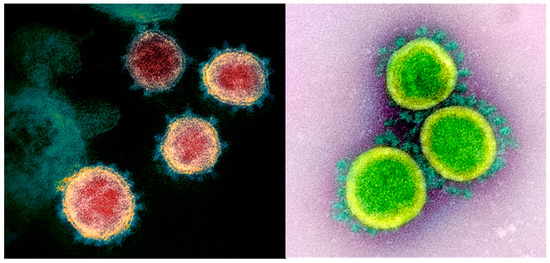A group of researchers at University of Limerick have established a
clear connection between a healthy diet and fighting inflammation linked
to COVID-19.
In a wide-ranging review, the UL academics evaluated evidence that suggests that the nutritional status and the role of diet and lifestyle is important in the outcomes of COVID-19 patients.
The article COVID-19: The Inflammation Link and the Role of Nutrition in Potential Mitigation has been published in the journal Nutrients.
It was written by Ioannis Zabetakis and Alexandros Tsoupras of UL’s Department of Biological Sciences and Health Research Institute (HRI) at UL, Catherine Norton of UL’s Department of Physical Education and Sport Sciences and HRI and Ronan Lordan of the Institute for Translational Medicine and Therapeutics, Perelman School of Medicine, University of Pennsylvania, Philadelphia who was awarded his PhD at UL.
Some of the key findings in the study conclude that:
“During the cytokine storm, the immune system reacts to the virus, whereby a flood of immune-related chemicals are formed causing uncontrolled inflammation. There are several significant risk factors for severe COVID-19 infection. These include the presence of poor nutritional status and pre-existing non-communicable diseases (NCDs) such as diabetes mellitus, chronic lung diseases, cardiovascular diseases (CVD), obesity, and various other diseases that render the patient immunocompromised.
“These diseases are characterized by systemic inflammation, which is different from acute inflammation as there is no cytokine storm but the inflammation can pre-exist for years and precede the clinical symptoms of the disease. Systemic inflammation is a common feature of these NCDs, which seems to affect patient outcomes against COVID-19.”
He explained further: “In this review, we discuss some of the anti-inflammatory therapies that are currently under investigation intended to dampen the cytokine storm of severe COVID-19 infections. Furthermore, we evaluate the evidence suggesting that the nutritional status and the role of diet and lifestyle is important in the outcomes of COVID-19 patients.
“Currently there is no proven treatment or mitigation strategy to cure or prevent COVID-19 infections. However, a healthy diet (such as the Mediterranean diet with high intakes of fruit, vegetables, fish providing nutrients such as vitamins and minerals) could be a mitigation strategy to inhibit systemic inflammation and support immune function amid the COVID-19 pandemic,” he added.
The review also looks at other “vulnerability parameters” including anorexia and lack of sleep.
The paper ‘COVID-19: The Inflammation Link and the Role of Nutrition in Potential Mitigation’, by Ioannis Zabetakis, Ronan Lordan, Catherine Norton and Alexandros Tsoupras is published in Nutrients and is available online here.
In a wide-ranging review, the UL academics evaluated evidence that suggests that the nutritional status and the role of diet and lifestyle is important in the outcomes of COVID-19 patients.
The article COVID-19: The Inflammation Link and the Role of Nutrition in Potential Mitigation has been published in the journal Nutrients.
It was written by Ioannis Zabetakis and Alexandros Tsoupras of UL’s Department of Biological Sciences and Health Research Institute (HRI) at UL, Catherine Norton of UL’s Department of Physical Education and Sport Sciences and HRI and Ronan Lordan of the Institute for Translational Medicine and Therapeutics, Perelman School of Medicine, University of Pennsylvania, Philadelphia who was awarded his PhD at UL.
Some of the key findings in the study conclude that:
- COVID-19 and non-communicable diseases (NCDs) are linked via inflammation
- Underlying conditions in COVID-19 related deaths are inflammation-induced
- A balanced diet can ameliorate chronic inflammation in NCDs, which may also reduce the risk of severe infection
- A balanced and healthy diet that provides adequate intake of essential nutrients will prevent nutrient deficiencies, reduce inflammation, and may reduce the severity of patient outcomes
- Despite the high number of unknowns in relation to COVID-19, the best strategies to prevent infection are to follow public health guidelines and to maintain a healthy diet and lifestyle
“During the cytokine storm, the immune system reacts to the virus, whereby a flood of immune-related chemicals are formed causing uncontrolled inflammation. There are several significant risk factors for severe COVID-19 infection. These include the presence of poor nutritional status and pre-existing non-communicable diseases (NCDs) such as diabetes mellitus, chronic lung diseases, cardiovascular diseases (CVD), obesity, and various other diseases that render the patient immunocompromised.
“These diseases are characterized by systemic inflammation, which is different from acute inflammation as there is no cytokine storm but the inflammation can pre-exist for years and precede the clinical symptoms of the disease. Systemic inflammation is a common feature of these NCDs, which seems to affect patient outcomes against COVID-19.”
He explained further: “In this review, we discuss some of the anti-inflammatory therapies that are currently under investigation intended to dampen the cytokine storm of severe COVID-19 infections. Furthermore, we evaluate the evidence suggesting that the nutritional status and the role of diet and lifestyle is important in the outcomes of COVID-19 patients.
“Currently there is no proven treatment or mitigation strategy to cure or prevent COVID-19 infections. However, a healthy diet (such as the Mediterranean diet with high intakes of fruit, vegetables, fish providing nutrients such as vitamins and minerals) could be a mitigation strategy to inhibit systemic inflammation and support immune function amid the COVID-19 pandemic,” he added.
The review also looks at other “vulnerability parameters” including anorexia and lack of sleep.
The paper ‘COVID-19: The Inflammation Link and the Role of Nutrition in Potential Mitigation’, by Ioannis Zabetakis, Ronan Lordan, Catherine Norton and Alexandros Tsoupras is published in Nutrients and is available online here.









